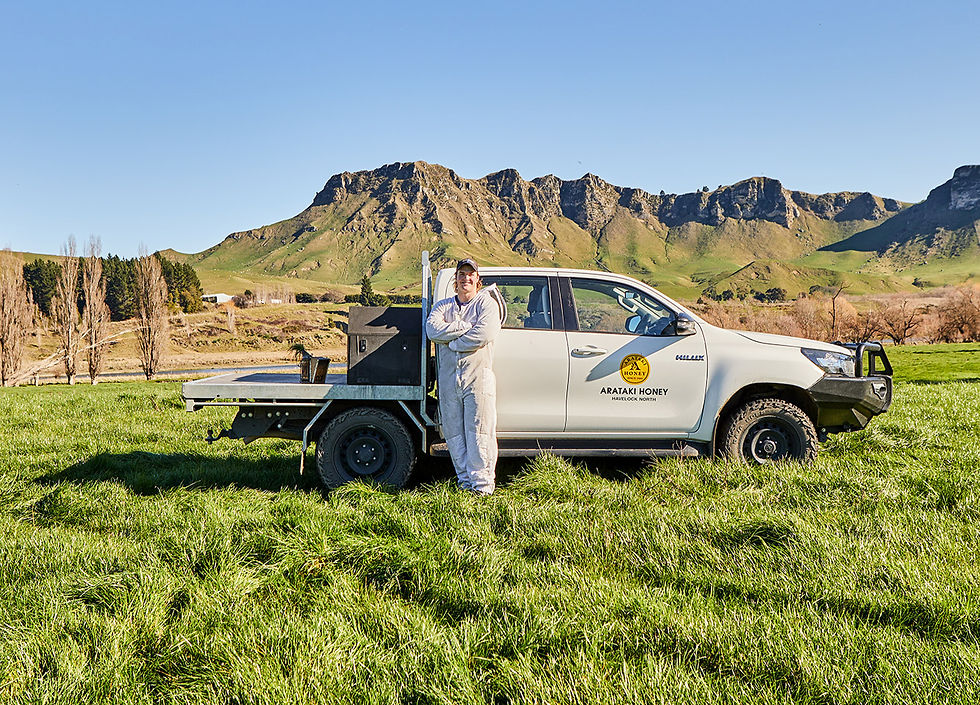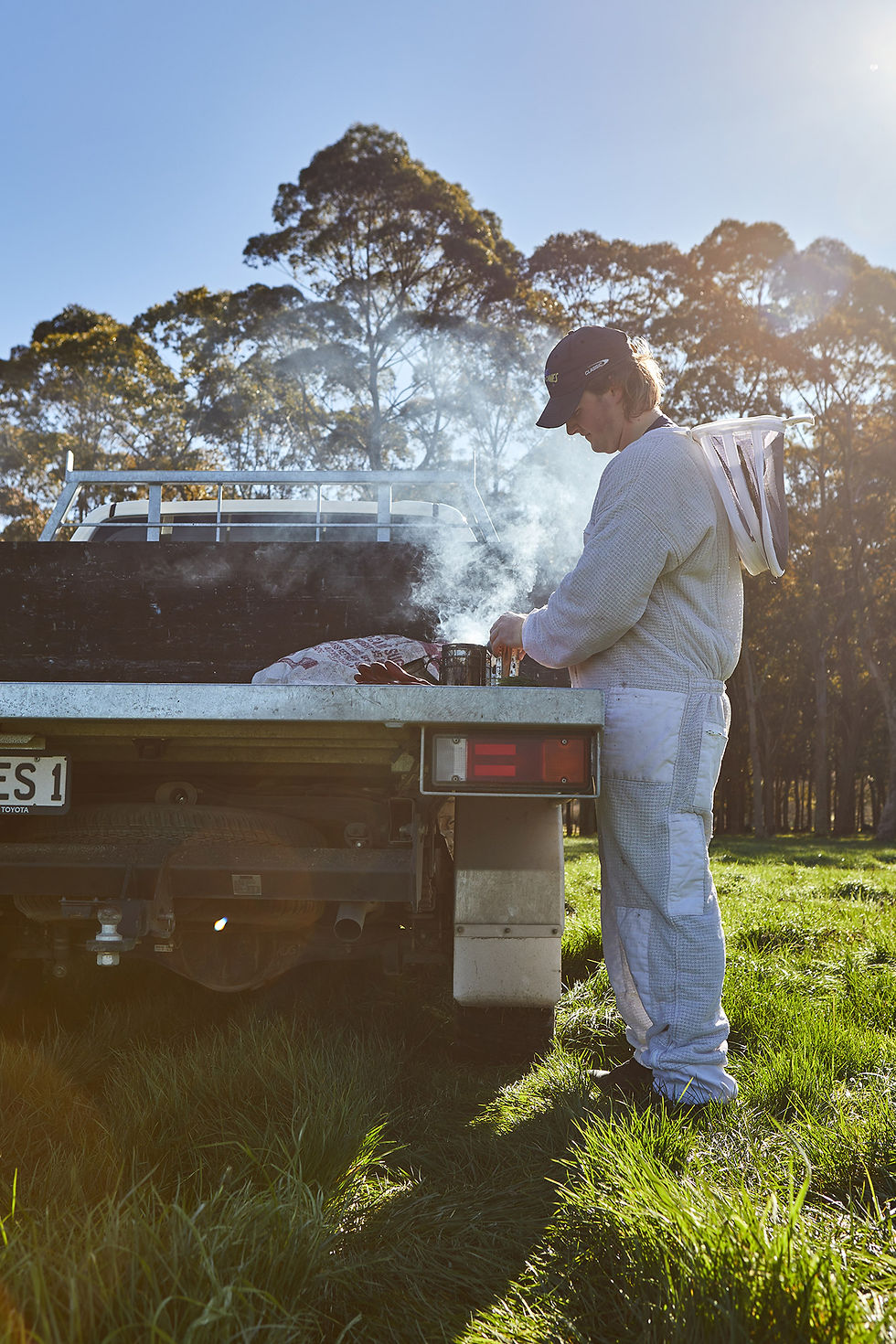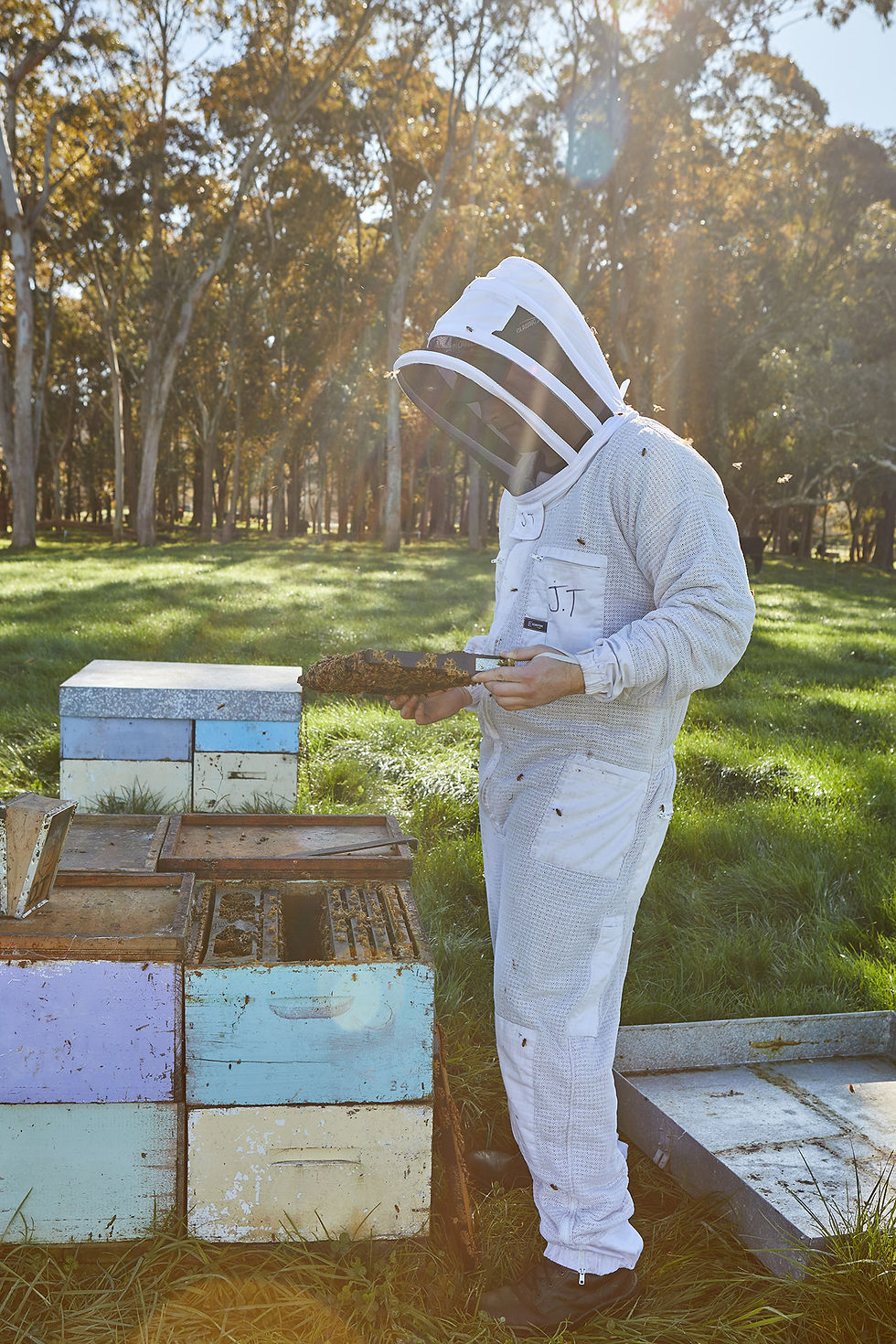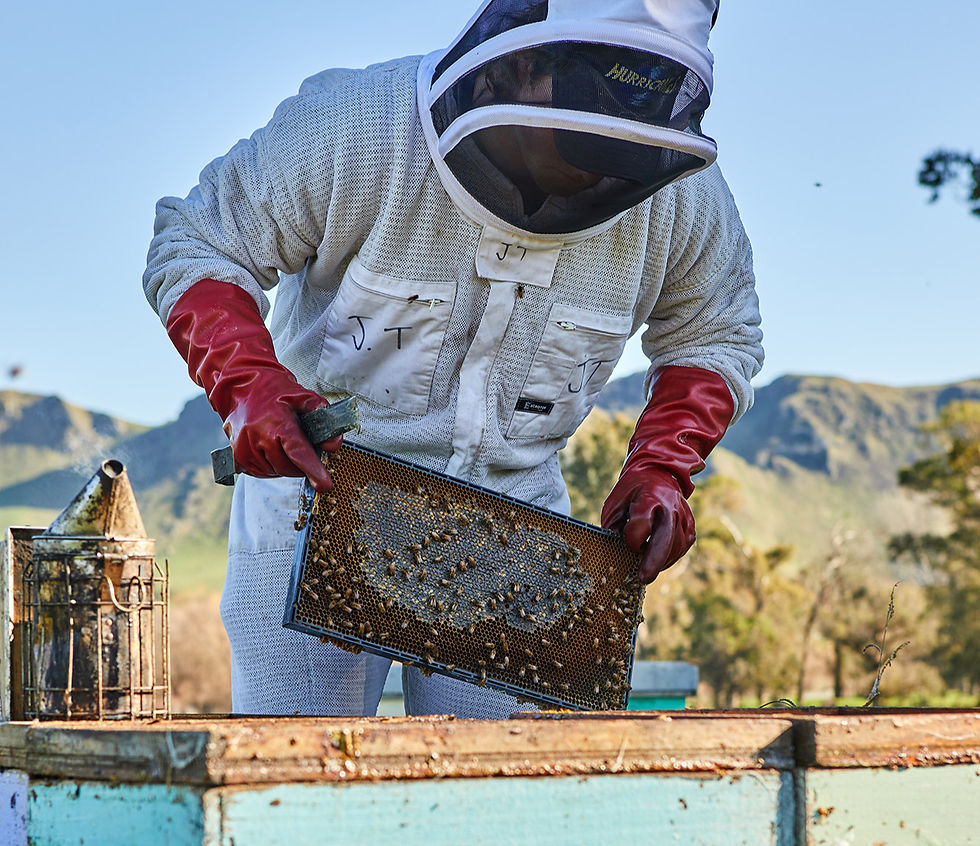A Day in the Life of a Beekeeper
- David Trim

- Sep 19, 2025
- 5 min read
Seasons come and seasons go, and with them all come the trials and tribulations of maintaining an environment to ensure the continuation of vital members of our ecosystem. David stepped out to discover what’s the buzz in beekeeping and maintaining the flow of that luscious golden liquid loved by virtually everyone, honey. He spent some time at Arataki Honey to find out what goes on in a day in the life of a beekeeper.

Ever wondered what it’s like to spend busy, wonderfully sweet and slightly sticky world of beekeeping. While bees are famously busy running their pollen-powered empire, their human counterparts, those suited-up beekeepers, are just as industrious. They quietly go about managing the hive hustle behind the scenes, being bee doctors and seasonal harvesters. From site inspections around the greater Hawke’s Bay, it’s a day filled with a strange combination of calm, chaos and a whole lot of buzzing. It’s hard not to involve Arataki Honey when looking at anything in the bee world in Hawke’s Bay, so I went to see what the buzz is all about with Joseph Thomas, a beekeeper of three years with Arataki Honey.

Why this profession? I started in the factory here first, extracting honey and cleaning hive boxes. I then got to go out to the hive sites to help, and I really enjoyed the experience, so I continued on to become a beekeeper. There is no actual apprenticeship, however Arataki have their own training programme and I have completed all of the requirements now. You learn so much from being with different beekeepers, as there are many ways to accomplish each task and varying opinions to consider.
What’s the biggest change in your profession over the past 10 years? There hasn’t been much change in our profession. There’s not too much scope for AI involvement, it’s still quite labour intensive, and we still rely on the bees to do their thing so we can do our part. Mānuka as a protected brand has been a big thing, particularly between New Zealand and Australia, with both claiming rights to the name.

What has been the most memorable experience for you? I still remember the first heavy box of honey I lifted off a hive. It weighed about 25 kg. It’s such a rewarding feeling when the boxes are full and the harvest is pumping. I’m not really sure how to describe it; it’s just a neat combination of good beekeeping, a good season of weather and flowering periods, and big work by the bees. It’s very satisfying.
What part of your work do you enjoy the most? I love the many remote locations we visit to check on or harvest our hives. We get to see awesome views that very few get to witness, and we get to stop and have lunch surrounded by some very beautiful scenery off the main roads. I like how we set the hives, and where we set the hives, so the bees make our different types of honey: clover, mānuka, rewarewa and blended native honey. They really are fascinating little creatures.

Describe a typical day. I normally start at 6.00 am. First thing is to work out where we are going that day, then load up the trucks with all the gear that we will need. We drive out to the hive sites; we have three teams who look after different geographical areas, so we get to know the hive sites well. When we arrive we check the hives for any signs of concern, a bit like a health check-up. We look for any diseases, poor health or internal problems within the bee structures. Catching any issues here could stop a swarm leaving the box. We want the bees to be looking good and the queen to be laying eggs in a systematic way.
If the honey is ready for harvest, we remove the top box that holds the honey cells and put an empty box back in its place. We record all our observations, including observations about the neighbouring surroundings, so we can reconcile any changes that may show up in the honey. Things like long flowering periods or drought conditions; these can all affect the outcome of the honey harvest.
Lastly we decide what the bees need in the hive to continue their work and set them up so they don’t starve and they can be fully content.
All hive work is done to upset the bees as little as possible
What advice would you give an enthusiast who would want to do what you do? This is a job where you learn best by doing, so if you like to get stuck in boots and all, then find a beekeeper to go out with and learn from. A love of nature is helpful, as it helps you to be observant of changes in the surroundings.
What do you find is the most challenging aspect about your job? Handling the heat, because when we harvest in summer you are all suited up; it gets especially hot on sunny days when you’re picking up heavy boxes of honey. Bees track heat, so they’re not particularly worried about you in the summertime and you don’t worry about being stung so much. In winter is a bit trickier – you become attractive to them as your body is warmer than the outdoor temperature
Funniest experience you have seen or been part of in your career? When we talk to kids about beekeeping, they always think that every time our trucks are loaded up with boxes that the bees are still inside and we bring them all back to the depot. They must think we are a Bee Hotel and put them up overnight while we extract the honey then run them back home again!
Of course the truth is we leave the bees in their hives on the farms with enough food reserves in other boxes to carry them through until we check on them again. We just take the box with the honey in it, replacing it with a box with empty frames for the bees to keep doing their work.
What do you think the future changes will be in your profession in the next 10 years? Managing the unpredictable and variable seasons is going to be the hardest thing. Wet summers are not so good for the bees. Every summer now seems to be different and we have to expect the unexpected. I don’t think the art of beekeeping will change much. It’s a traditional kind of industry that hasn’t really found how modern technology can actually intervene, other than in more efficient monitoring and processing of the honey once we have harvested it.
























Comments